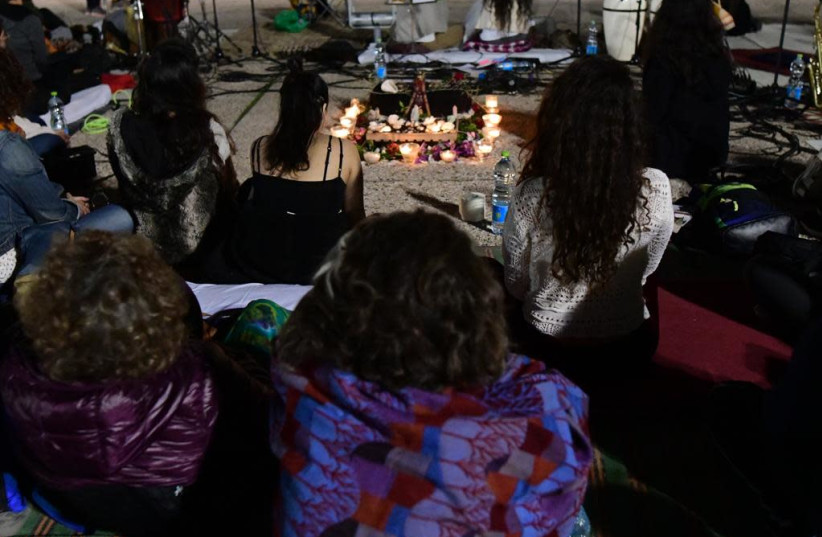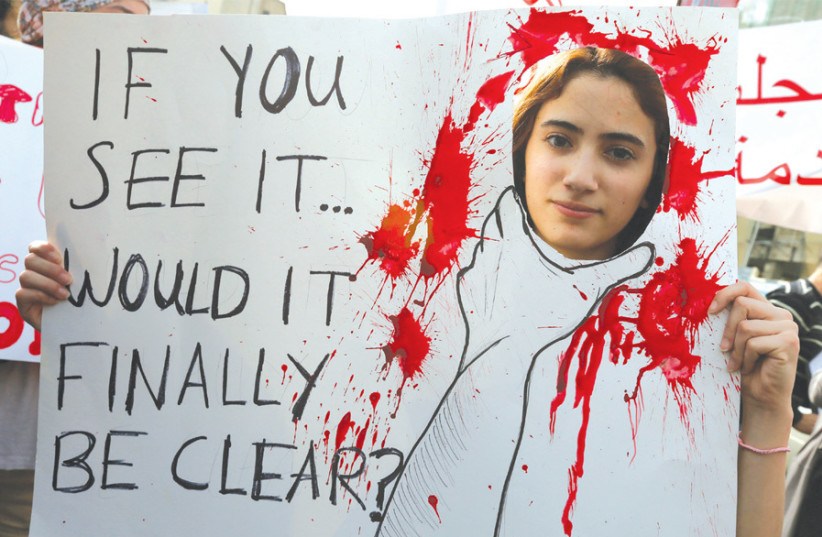After almost a year, multiple surgeries and a lifetime worth of trauma and publicity that would make anyone overwhelmed – Shira Isakov is free.
On Wednesday, her ex-husband, Aviad Moshe, was convicted of attempting to murder Isakov in the presence of their son. He had inflicted 20 stab wounds on Isakov using a kitchen knife and beat her relentlessly with a rolling pin.
The Beersheba Magistrate’s Court, back when the attack occurred last year, approved that Moshe’s name not be published in the media as Isakov lay in the hospital bed in serious condition, intubated and sedated due to the torture her husband had inflicted on her. He claimed it was for the sake of his elderly parents.
Once the decision had been overturned, Isakov’s experience of what must have been hell was not over. Moshe continued to inflict terror on her as the public watched in horror.
A few months after the attempted murder, prison guards overheard Moshe telling his family that he was sending a well-known criminal to threaten Isakov. Media reports indicated at the time that his family – the aforementioned elderly parents – encouraged him to do so.
Isakov told the N12 news site at the time that she refused to move to a secret women’s shelter: “You have a man in jail, so put him in solitary confinement so that he’s not with anybody else. I need to take my son and go into hiding?”
As she lived in fear of these threats, she began receiving messages of a sexual nature from strangers after her phone number was shared in notices for free sex services.
After enduring this nightmare, Isakov may finally have some peace of mind – or at least for a maximum of 20 years, the most jail time someone convicted of attempted murder can get.
Isakov, with all this suffering, was one of the lucky few. More than 20 women were murdered by their husbands in 2020.
And this year, in February, Diana Raz was murdered by her husband, Amir. He had a gun because he was a police officer. He initially claimed that he did not know what came over him. He later claimed that he acted in self-defense. Diana had been a marital counselor.

Goumana Keisi was murdered in May by her brother and husband after repeatedly reporting to welfare services that she was experiencing domestic abuse. The social worker who had met with her at the time did not think she needed to reach out to the police. She had been known to the local center for the treatment and prevention of domestic violence because of her husband’s abuse.
Just a week ago, Ludmila Rahimov was murdered by her son. He was known to be physically abusive toward his mother. Rahimov’s neighbor said she would often put on makeup to hide the signs of abuse.
The fact that Moshe was convicted is a win for the battle against domestic violence, to be sure. But the pattern will return until policies driven toward eliminating domestic abuse are pushed forward.
The now-mythical domestic violence prevention budget, which was passed in 2017, has yet to be fully transferred, with only one-fifth of the NIS 250 million allocated. These are the funds that would go to programs that would better help women and families undergoing severe hardships due to abuse.
Coronavirus lockdowns often allow already-existing violent tendencies to surface due to anxiety and financial pressure, leading to a massive spike in domestic abuse since the coronavirus pandemic took hold of the world. This must be taken into account when the government weighs different coronavirus policies.

In addition, there are virtually no educational programs whatsoever about sexual or domestic violence in Israeli schools. After the now-infamous gang-rape of a 16-year-old by a group of teen boys in Eilat occurred a little over a year ago, the schools that some of those boys attended held special lessons on abuse of this sort. But there is no core curriculum or regularly-taught program about such abuse – and it is sending children into the dark about how they should behave toward one another.
There is never a time when domestic violence should be ignored, but during a pandemic that is still tormenting the world, everything must be done to prevent further abuse of this sort.
